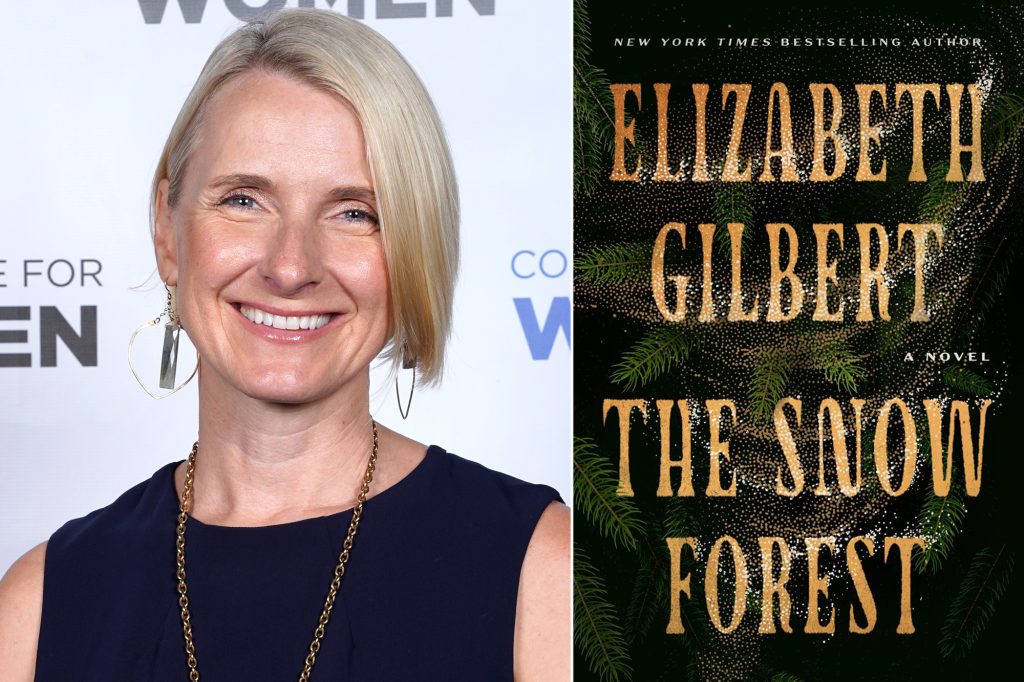Best-selling author delays publication of book over backlash for setting it in Russia
First posted July 3, 2023 10:36am EDT
Last updated July 3, 2023 10:36am EDT
All Associated Themes:
- Artistic Expression
- Professional Consequences
- Protest Politics
- Social Media

Author Elizabeth Gilbert announced she would indefinitely delay the publication of her book The Snow Forest. In light of the ongoing war in Ukraine, hundreds of online commenters condemned her for writing and releasing a book set in Russia, despite the fact that the plot was set in the 20th century.
Key Player
Elizabeth Gilbert, an American author and journalist, has written eight books, and is widely known for her 2006 memoir Eat, Pray, Love, which has sold over 12 million copies worldwide and has been adapted into a film.
Further Details
On June 6, 2023, Gilbert announced on her Facebook page that her new novel The Snow Forest would be published on Feb. 13, 2024. The novel, set in 1930s Siberia, follows a family seeking refuge from the Soviet government in the wilderness.
In the days following her announcement, the Goodreads page associated with Gilbert’s novel received an average one-star rating, as well as an outpouring of comments condemning the book’s alleged romanticization of Russian culture. Other comments criticized how close the publication date was to the second anniversary of Russia’s invasion of Ukraine. The Goodreads page no longer exists.
“It looks like Elizabeth Gilbert herself ‘lived isolated and undetected’ last few years. Because how else can you explain publishing an ‘inspiring story’ about russians (sic), while they are committing genocide against Ukrainians at this moment?” one reviewer wrote.
“Putin’s Russia is a far right imperialist and terrorist state that deserves all the opprobrium directed at it. But this seems very weird to me, book reviewer Lincoln Michel tweeted. “I mean the author’s decision but… no book should be set in historical Russia now?”
Outcome
Gilbert announces indefinite delay of publication
On June 12, Gilbert posted a video to Twitter explaining that she would delay the publication of her book until further notice and would provide a full refund to all people who pre-ordered it.
“Over the course of this weekend, I have received an enormous, massive outpouring of reactions and responses from my Ukrainian readers, expressing anger, sorrow, disappointment, and pain about the fact that I would choose to release a book into the world right now,” Gilbert explained.
“It is not the time for this book to be published,” she added. “And I do not want to add any harm to a group of people who have already experienced and who are all continuing to experience grievous and extreme harm.”
Gilbert and a representative from her publisher, Riverhead Books, denied providing additional comments to both TIME and The Washington Post about the incident.
PEN America and others express concerns
PEN America, a nonprofit organization defending free expression in literature, published a statement by CEO Suzanne Nossel, expressing regret “that Elizabeth Gilbert felt it necessary to delay the publication of a novel set in Russia. Ukrainians have suffered immeasurably, and Gilbert’s decision in the face of online outcry from her Ukrainian readers is well-intended. But the idea that, in wartime, creativity and artistic expression should be preemptively shut down to avoid somehow compounding harms caused by military aggression is wrongheaded.”
Additionally, Nossel suggested that “the publication of a novel set in Russia should not be cast as an act exacerbating oppression. Fiction and culture are essential to supporting mutual understanding and unleashing empathy.”
Mary Rasenberger, CEO of the Authors Guild, an advocacy group for writers, called attention to the growing number of authors who are feeling pressured by various online campaigns to censor themselves.
“We don’t think authors should ever be pressured not to publish their books,” Rasenberger stated. “The more complicated issue of the era is that authors are being told they can’t write about certain subjects.”
“So apparently,” writer Rebecca Makkai tweeted, “Wherever you set your novel, you’d better hope to hell that by publication date (usually about a year after you turned it in) that place isn’t up to bad things, or you are personally complicit in them.”
As of June 28, 2023, there were no further developments.